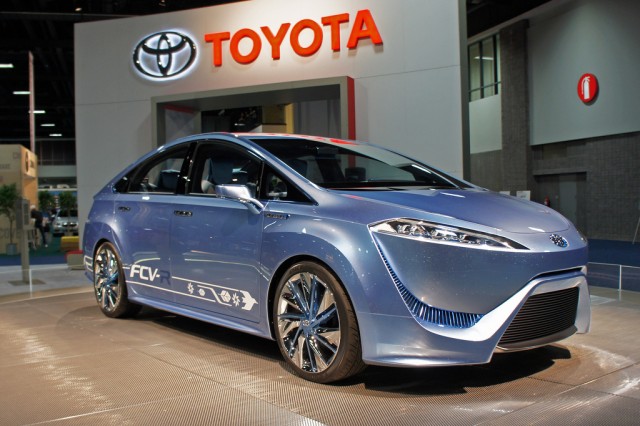Toyota announces FCV, a commercially viable fuel cell vehicle
Ars Technica » Scientific Method 2014-01-06
Fuel cell vehicles have been a technology in waiting for decades now, but Toyota thinks we only have another year to wait. At CES, Toyota provided some more details about its plans for how it will bring its FCV concept into the real world. Working in collaboration with several state and local agencies as well as the Advanced Power and Energy Program at the University of California Irvine, Toyota announced plans for the installation of fuel cell recharging stations scattered in an area that would stretch from San Francisco down to San Diego. Toyota expects the network to be able to service upwards of 10,000 fuel cell vehicles by 2024.
The FCV concept is the evolution of an engineering prototype that has been undergoing rigorous testing over the last 11 years. The prototype has been steadily refined to make it economically feasible, and Toyota expects the shipping product to deliver a range of 300 miles with fill-ups taking just three to five minutes.
Our intrepid review editor, Lee Hutchinson, took Tesla's flagship electric vehicle for a spin, and he found the charging time to be adequate if you had access to a Supercharger. With a fuel cell vehicle, pressurized tanks of hydrogen are refilled, and then you're on your way. Electricity is generated through the catalysis of the hydrogen into its electron and hydrogen ion components. The only emission from such a vehicle is water vapor, and Toyota expects a fully charged FCV to be capable of generating 100kW of power. That's enough to power a house for a week.
Read 1 remaining paragraphs | Comments
